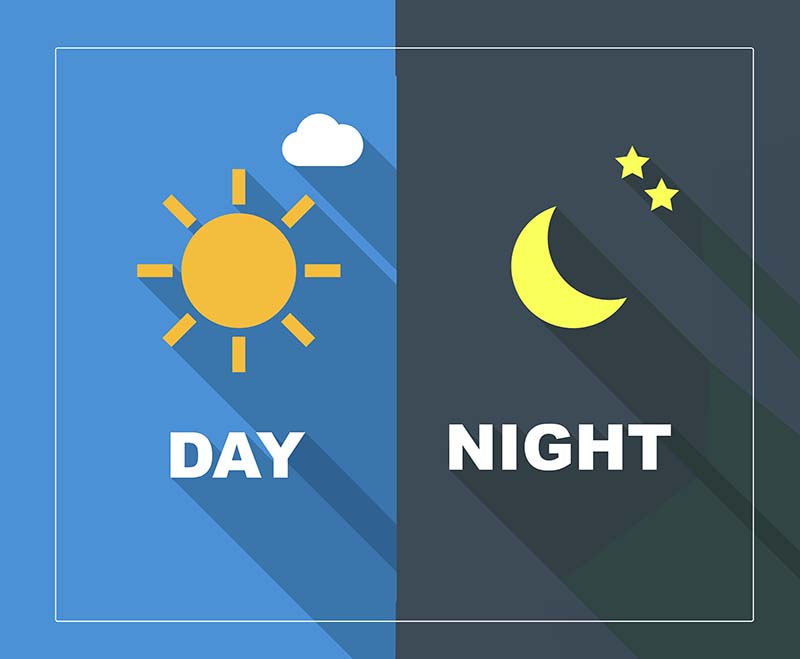Vitamin B12, a crucial component in many people’s health supplement routines, plays a significant role in maintaining optimal body function, much like its fellow B vitamins. “Can Taking Vitamin B12 at Night Enhance Its Benefits?” This question becomes relevant when incorporating Vitamin B12 into your daily health regimen. Selecting the right time to take this supplement is key to maximizing its effects. Is it more effective to take it in the morning alongside breakfast, or could it be better right before bed? This article is designed to guide you in finding the most effective routine tailored to your needs.
1. What Is Vitamin B12?
Vitamin B12, or cobalamin, is an important vitamin that our body needs. It’s found in foods that come from animals, like fish, shellfish, liver, red meat, eggs, chicken, and milk products. Sometimes, it’s also added to other foods or taken as a pill. Vitamin B12 is really important for making red blood cells and DNA, and it’s also needed for the health of our brain and nerves. It works by attaching to the protein in food, and then it’s released in our stomach. After that, it joins with a special protein to be absorbed by our body.

It’s not very common for people to completely lack Vitamin B12, but it’s more usual for some people to have just a little bit less than they need, especially if they don’t eat a lot of foods rich in Vitamin B12. Vegetarians and vegans, who don’t eat animal products, might not get enough Vitamin B12. If you don’t have enough Vitamin B12, you might feel weak and tired, have heart palpitations, feel short of breath, look pale, and have a smooth tongue. Some people might need to take Vitamin B12 pills, especially if their bodies have trouble using it properly.
2. Why Do We Need Vitamin B12?
Vitamin B-12 plays a vital role in maintaining several key functions within the human body. According to the National Institutes of Health, this nutrient is essential for the health of red blood cells and nerves. Additionally, it plays a significant role in the production of DNA, the genetic blueprint found in all cells.
A pronounced deficiency in vitamin B-12 can lead to a condition known as megaloblastic anemia. This specific type of anemia results in symptoms such as fatigue, weakness, and can cause ongoing damage to various parts of the body if left unchecked.
3. Benefits of Vitamin B12
Vitamin B12 is an essential vitamin that provides numerous health benefits. It plays a vital role in various bodily functions and is particularly important for maintaining nerve health and aiding in the production of DNA and red blood cells. Here are some key benefits of vitamin B12:
- Vitamin B12 is essential for producing red blood cells and preventing anemia. Low levels of this vitamin can lead to improper red blood cell development, resulting in larger, oddly shaped cells. This irregular shape hampers their movement from bone marrow to the bloodstream, leading to a type of anemia called megaloblastic anemia. Anemia means your body lacks enough red blood cells to carry oxygen effectively, causing fatigue and weakness.
- Vitamin B12 is vital for a healthy pregnancy. Early pregnancy deficiency can increase the risk of birth defects, such as neural tube defects, and might lead to premature birth or pregnancy loss. A study indicated that mothers with lower B12 levels had a significantly higher risk of birth defects.
- Adequate B12 levels may support bone health and prevent osteoporosis. Low B12 levels have been linked to poorer bone health and a higher risk of osteoporosis or fractures. However, there’s no strong evidence suggesting B vitamin supplements prevent osteoporotic fractures, and more research is needed.
- Vitamin B12 might reduce the risk of macular degeneration, an eye condition affecting central vision. Studies suggest a diet high in B vitamins could lower the risk of advanced age-related macular degeneration, though more research is needed to understand B12’s role in eye health.
- B12 may improve mood and symptoms of depression. Research shows B vitamins might help stress-related mood issues. While there’s no conclusive evidence that B12 directly impacts depression, lower B12 levels are associated with a higher risk of depression. More studies are needed to clarify B12’s effect on mood and depression.
- B12 deficiency is linked to memory loss, particularly in older adults. Some studies suggest B12 may slow cognitive decline in people with higher omega-3 fatty acid levels, but not in those with lower levels. More extensive research is required.
- Vitamin B12 is often marketed for energy boosts, but it doesn’t directly provide energy. B12 deficiency can cause fatigue, and correcting this deficiency may improve energy levels. However, B12 supplements don’t necessarily increase energy in those without a deficiency.
- B12 levels affect the health of skin, hair, and nails. Deficiencies or excesses can lead to skin hyperpigmentation, nail discoloration, hair changes, vitiligo, and mouth sores. Adequate B12 levels are important for maintaining healthy skin, nails, and hair, but supplements aren’t shown to benefit those without a deficiency or excess.

4. The Best Time of Day to Take Vitamin B12
Vitamin B12, crucial for the production of red blood cells, cellular metabolism, nerve functionality, and DNA synthesis, is key in averting anemia. Its myriad health advantages extend to bolstering bone and eye health, nurturing skin and hair, and possibly alleviating depression symptoms. Understanding the best time for your body to absorb vitamin B12 maximizes its benefits. Here is an overview of the optimal timings for vitamin B12 consumption.

4.1 Taking Vitamin B12 in the Morning
While there’s no strict guideline on the ideal time to consume vitamin B12, morning intake is often favored. This preference is usually based on personal schedules and daily routines. Morning consumption can seamlessly integrate with breakfast, starting the day on a healthy note.
4.2 Taking Vitamin B12 at Night
Equally, taking vitamin B12 in the evening doesn’t come with specific instructions. Its water-soluble nature means it’s flexible to be ingested any time, with or without meals. Evening doses can be easily incorporated into dinner routines or before bedtime rituals.
For individuals experiencing sleep disturbances, it’s advisable to consume vitamin B12 earlier in the day as it can potentially interfere with sleep patterns. Additionally, pairing vitamin B12 with a source of vitamin C may enhance absorption.
5. Vitamin B12 and Sleep
The relationship between vitamin B-12 and sleep patterns remains somewhat ambiguous. A study from August 2014, featured in PLoS One, indicated a negative correlation between vitamin B-12 levels and the length of sleep, suggesting the need for more extensive research to draw definitive conclusions.

Despite this, consuming vitamin B-12 immediately before bedtime might adversely impact sleep due to various factors. As per guidance from the Mayo Clinic, larger doses of vitamin B-12, often prescribed for deficiencies, can lead to side effects such as:
- Dizziness
- Headache
- Anxiety
- Nausea
- Vomiting
These symptoms are certainly not conducive to a peaceful night’s sleep. However, such side effects are uncertain and may not manifest at all. Therefore, experimenting with nighttime supplementation could be an option to consider.
6. The Impact of Vitamin B12 on Sleep
Vitamin B12’s effect on sleep has been explored in many studies. Research shows that people with lower levels of vitamin B12 often have trouble sleeping. This is especially true for older people, those who aren’t overweight, and women. Vitamin B12 is also important for keeping our body’s natural clock, known as the circadian rhythm, in check and helps produce melatonin, a hormone that controls when we sleep and wake up.
However, when it comes to how long people sleep, the findings are mixed. Some studies suggest taking vitamin B12 might lead to sleeping less, while others don’t see a clear connection between vitamin B12 and sleep length.
7. Can You Take Vitamin B12 Before Bed?
Although there’s no set rule for when to take vitamin B12, and no clear proof that taking it at night disturbs sleep, there’s still a chance it could affect how well you sleep.
If you’re trying out vitamin B12 and worried about your sleep, you might want to take it earlier in the day. Keeping an eye on how you feel after taking it can help you figure out the best time for you.
8. How Much Vitamin B12 Should You Take Daily?
Vitamin B-12 supplements are usually safe when taken in the right amounts. Adults are advised to take 2.4 micrograms of vitamin B-12 daily, but it’s been found that even higher doses are typically safe. This is because your body only takes in the amount it needs, and any extra is simply removed through your urine.
9. Can You Take Vitamin B12 With Other Vitamins?
Vitamin B12 can be combined with other vitamins, but certain factors must be considered. It’s generally safe to take B12 with other B vitamins. They often come together in B complex supplements and support each other’s functions. However, be mindful of some interactions. Vitamin C, for instance, can interfere with B12 absorption. To avoid this, it’s best to space them out by at least 2 hours. Also, high doses of folic acid can conceal a B12 deficiency. Therefore, consult a doctor if you’re planning to take more than 800 mcg of folic acid.
10. Conclusion
In conclusion, the question of “Can Taking Vitamin B12 at Night“ impact your health or sleep patterns is a nuanced one. As we’ve explored, while there is no strict rule against taking vitamin B12 at night, individual responses can vary. Understanding how your body reacts to supplements is key. We encourage you to share your experiences and feedback on how vitamin B12 has affected you, particularly when taken at night. Your stories can provide valuable insights for others navigating similar choices.
For more informative discussions on health and wellness, don’t forget to explore more blogs from Biosculpture, where we delve into a variety of health-related topics. Your journey to better health is important to us, and we’re here to support it every step of the way.


